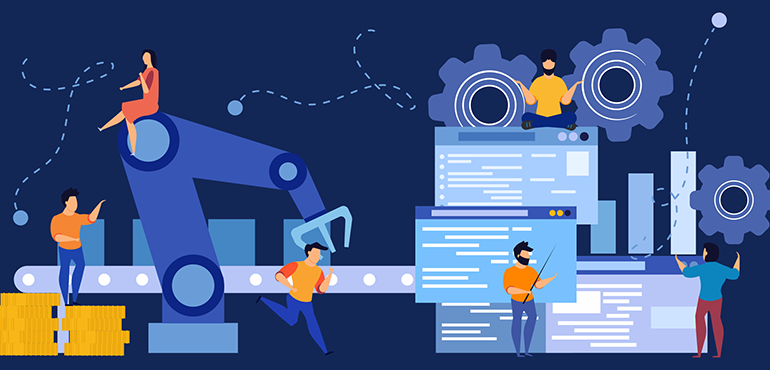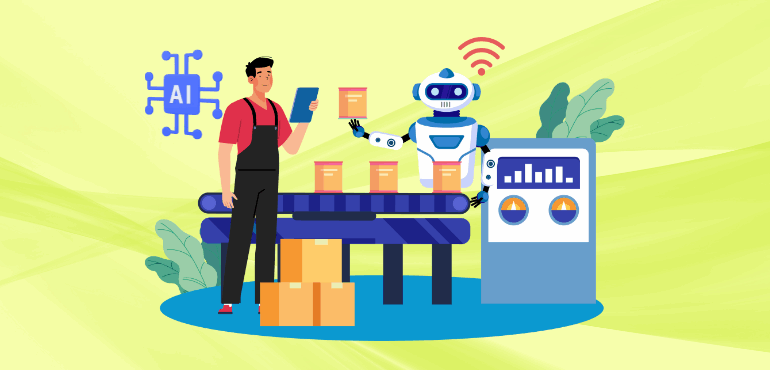
What is an Application Development Platform? Unlock The Business Agility
Reading Time: 7 minutesWhat’s stopping your best ideas from becoming reality? It’s not creativity—it’s the tools. Turning ideas into real applications shouldn’t be hard. That’s why we have application development platforms—to make building apps smarter, faster, and easier. And here’s why it matters- the application development software market is projected to grow from $255 billion to $1.7 trillion

Navigating the Agile Framework Essential Insights for Modern Business in 2025
Reading Time: 9 minutesDid you know? According to a McKinsey survey, companies that adopt agile practices are 70% more likely to rank in the top quartile for organizational health. It’s not just a framework, it’s a catalyst for future business leaders and sustainable growth. In a world where change is constant and technology evolves faster than ever, embracing

What is Digitization & Digitalization? A Strategic Guide for Growth in 2025
Reading Time: 13 minutesDigitization, digitalization, and digital transformation are all terms that have been very prominent since the late 2000s. They have been used interchangeably, often for the wrong reasons, and potentially not given the importance they deserve. Have you ever gotten in a conversation where someone is talking about putting their business through the process of digitization?

Retail Automation 2.0: Your Ultimate Key to Thriving in the Future of Shopping
Reading Time: 10 minutesAs commerce continues to evolve at breakneck speed, the retail industry is undergoing a dramatic transformation powered by modern Gen-Z technology. At the core, this shift in retail automation is a game-changer in redefining how businesses operate, engage with customers, and streamline their supply chain operations. From AI in the retail industry to driving inventory management

Retail Digital Transformation for Scalable Growth and Smarter Operations in 2026
Reading Time: 13 minutesHave you noticed how drastically the retail experience has evolved over the past few years? Retail Digital Transformation is not just about adopting the latest technology—it’s about fundamentally rethinking how future business leaders should operate their businesses, stay competitive, and engage with customers in a digital-first world. Now, ask yourself – when was the last time

Get Better Data, Faster in 2026: Survey Software Built for Modern Teams
Reading Time: 12 minutes“Most survey software tools are made to serve everyone, which means they rarely serve you well.” After all, the COTS (Commercial Off-The-Shelf) survey software tools are packed with features that sound good, but they don’t solve all the problems you face every day. The result? Wasted time, incomplete data, and decisions that miss the mark.

HR Challenges in the Retail Industry: Top 10 Critical Gaps
Reading Time: 8 minutesThe retail industry is a vast, often unorganized ecosystem that demands seamless coordination across departments from supply chain and logistics to staffing. In this dynamic environment, even the slightest disruption can cause ripple effects across operations. While small retail businesses may catch issues quickly, large enterprises face far greater complexity. With thousands of moving parts,

Process Mining 101: Unveiling the Dynamic Secrets of Your Business Workflows
Reading Time: 8 minutesIf there are two phrases we are hearing much too often today, they are “digital transformation” and “automation.” Of course, this drastic change was overdue, but the pandemic catapulted it, eliminating any and all excuses for procrastination. If a business has to survive this uncertainty, it has to make digital transformation its key focus, the

Workflow Automation Software 101: The Ultimate Guide for Smart Systems & Tools
Reading Time: 20 minutesDid you know? Over 80% of businesses are planning to boost their spending on automation technologies in the near future. What is workflow automation software? It’s a tool that automates manual, repetitive tasks and streamlines business processes—eliminating bottlenecks and inefficiencies. That’s why businesses rely on it to boost productivity. But a customized workflow automation system

What is AI in Retail Industry? 10 Key Use Cases & Best Practices
Reading Time: 8 minutesLet’s face it—retail isn’t what it used to be. Customers demand instant service, personalized experiences, and seamless shopping journeys. And retailers? They’re realizing that staying ahead means turning to smart means —using “AI in Retail Industry” . In fact, AI in the retail industry is expected to hit over $100 Bn by 2032. From New













